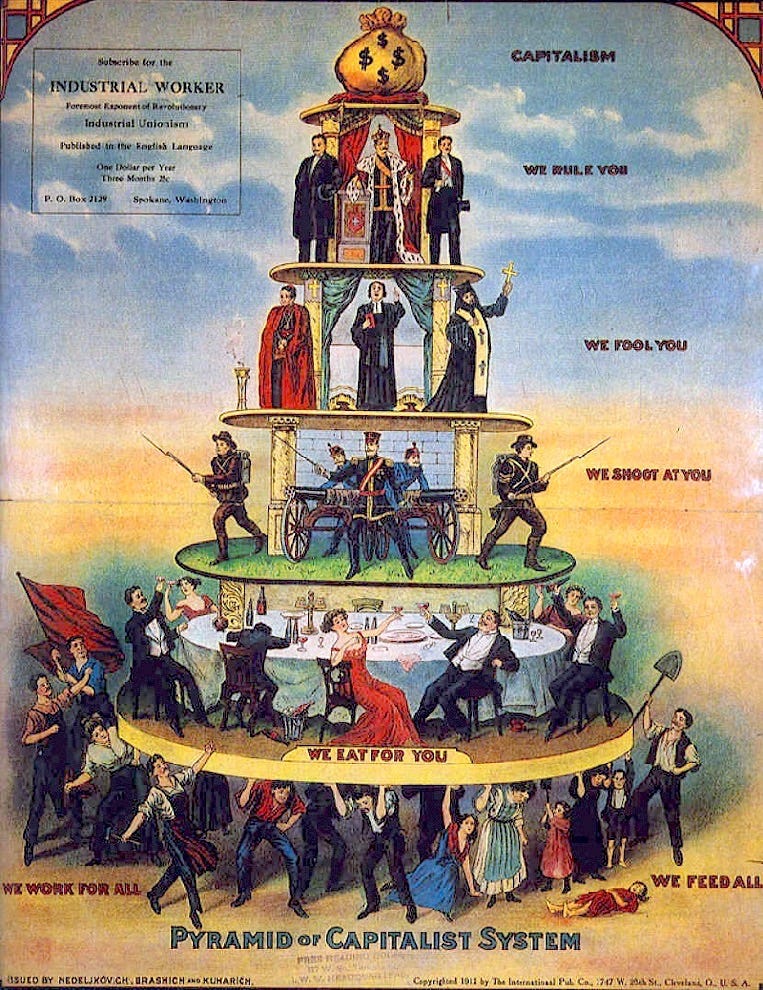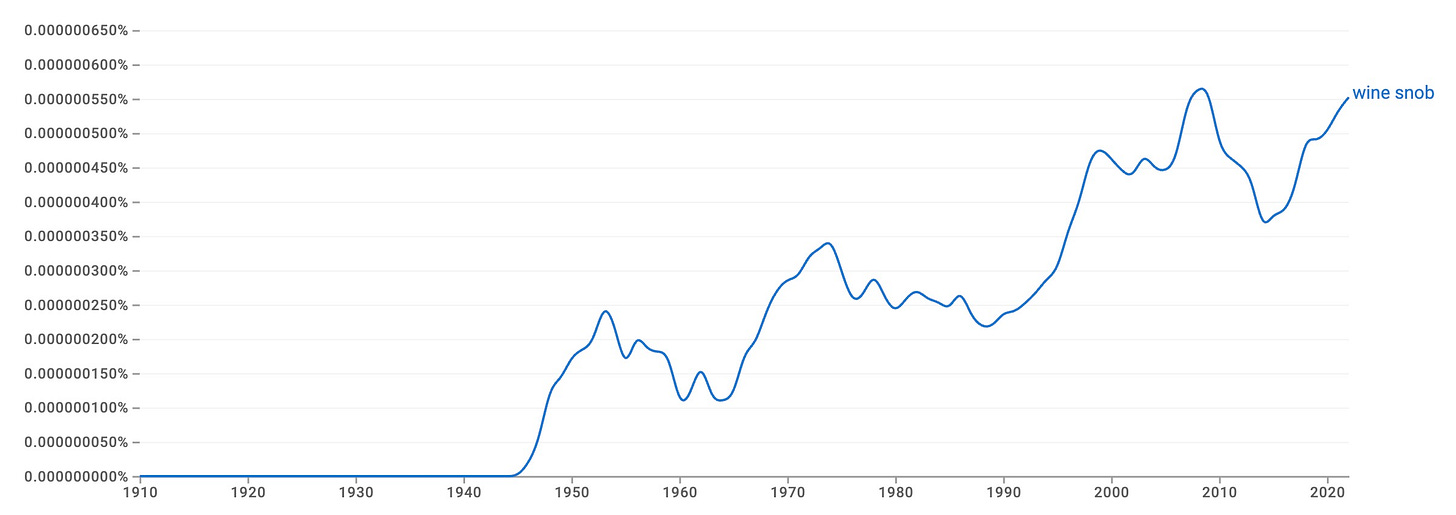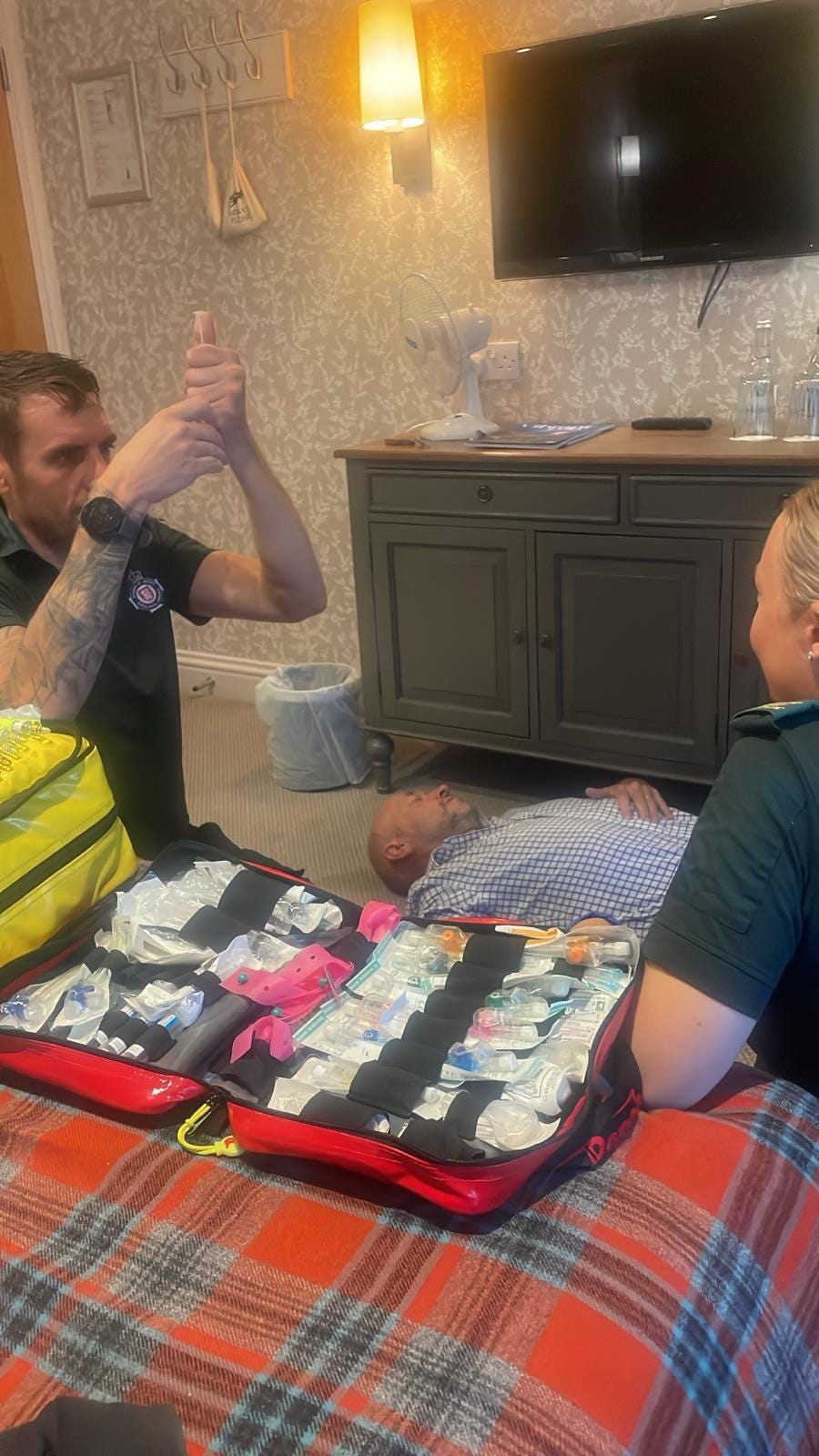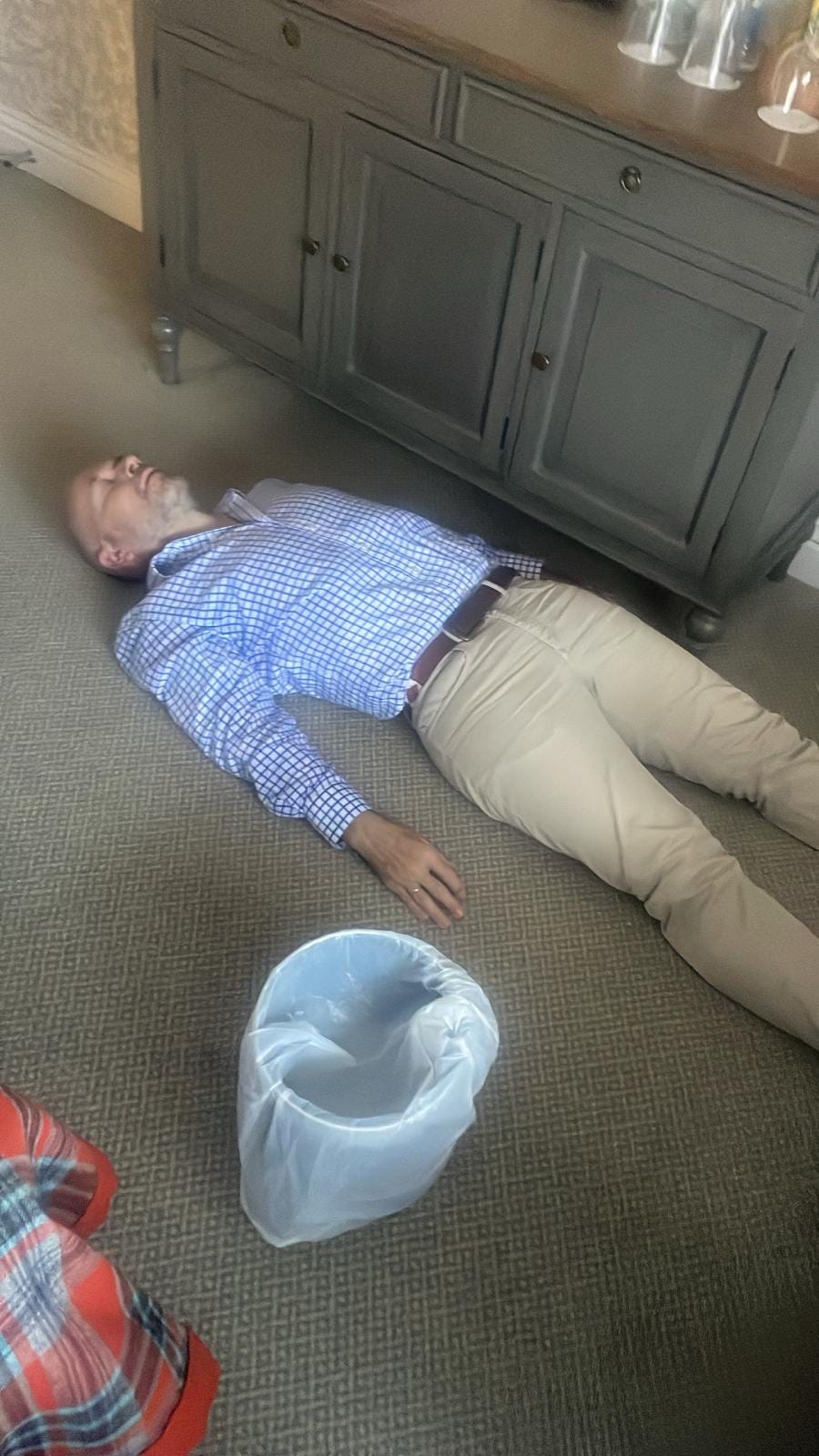This post is free for all. Do please like, share, and subscribe.
If you are a student on a recognised wine course (WSET, MS, MW, Wine MBA) send me a message about special rates
The Narcissism of small (wine) differences #1
This week’s Spectator has a review of P.J. Harrison’s book Gallagher: The Fall and Rise of Oasis by Julie Burchill. Burchill writes that she had never previously realised Liam Gallagher’s dry wit:
Dismissing his brother as being too rich, [Liam] once sneered: ‘Noel lives in a £17 million house. That changes you. You have appropriate furniture, appropriate kitchens and appropriate red wine that Bono’s recommended.’
Two brothers, with identical backgrounds, an identical career, and (similarly) fabulous wealth. Divided by their approach to furniture and wine.
The narcissism of small (wine) differences #2
Speaking of the Gallagher brothers naturally makes me think of the Thatcher-era MP’s Alan Clark and Michael Heseltine. Again, two figures who in the eyes of the general public would be indistinguishable as posh men in power. Yet Clark famously dismissed Heseltine as:
An arriviste, certainly, who can't shoot straight and in Jopling's damning phrase 'bought all his own furniture'
…like Liam, using taste in furniture to mark the gulf he perceived between them.
Clark and Heseltine were also divided by wine. In a manner. Clark was a great wine lover, to the extent that he remains the only MP to be accused to being drunk at the dispatch box in The House of Commons. Something he didn’t deny in his diaries, admitting he had come to the Commons at 10.00pm straight from a wine “tasting”:
We ”tasted” the first bottle of '61 Palmer, then “for comparison” a bottle of '75 Palmer then, switching back to the '61, a really delicious Pichon Longueville ... By 9.40 I was muzzy.
There is less in the public record about Michael Heseltine’s approach to wine. But there is a revealing detail from the career of Jancis Robinson MW. Jancis’s first job was at the wine trade magazine Wine & Spirit, where the editor Colin Parnell was somewhat distracted as he sought to launch a consumer wine magazine:
[Parnell] had tried and failed to interest the owners of Wine & Spirit, Michael Heseltine’s Haymarket Publishing, in launching a consumer wine magazine alongside their trade one
Parnell’s consumer magazine became Decanter. As Jancis notes, Decanter is still going strong (now) fifty years on. Wine & Spirit is dimly remembered today by only the oldest people in the trade. Heseltine was perhaps too busy buying furniture to notice there was a transformation in Britain’s drinking habits.
The narcissism of small (wine) differences #3
Which was something I thought of when I was rather taken by this picture from a Substack note - you’ll have to forgive me, I can’t for the life of me remember whose:
You will notice the wine drinking classes are not at the top of the free. They sit merely above the workers. And indeed they might equally be dismissed as a bunch of wonky-shooting arrivistes sitting on recently bought furniture by the assorted classes above.
The picture is another data point in my evolving theory that wine snobbery is - in Freud’s phrase - der Narzissmus der kleinen Differenzen.
The term “wine snob” was almost unknown in the UK until after the Second World War. (It was barely known in the US either).
Why?
I suspect two reasons. Wine in the UK after the War was strictly rationed, with a complex set of regulations. According to Berry Bros & Rudd:
This meant that we had to impose a similar system on our own customers, who were in any case used to food rationing, so that, strictly speaking, we could only supply people who had bought from us before the War.
I suspect this led to a curious set of circumstances.
As the Berry’s article stresses - even Laurence Olivier and Vivien1 Leigh struggled to get hold of Champagne for their opening night performance - because they were not customers from before the War. Access to wine would therefore have brought extraordinary cachet and social status as a mark of “difference”. But this effect would then be compounded over the coming decades as overseas travel was democratised, and holidaymakers of all classes brought “continental” dining habits back to the UK.
So that Britain went from extremely restricted access to wine based on prior privilege, to mass consumption based on cheap foreign travel, all within a generation.
The sociologist in me sees Liam Gallagher’s comment about his brother as both dry wit and a residual cultural framing of wine as a class marker. I would dearly love to know if Bono recommended that Noel Gallagher buy his wines from Berry Bros & Rudd. I suspect the team are too discreet to let on.
Years of reading Pierre Bourdieu see the narcissism of small differences as a habitus-informed contempt for symbolic capital. A roundabout way of saying that war, regulations, and package holidays have cursed wine with the ability to distinguish ourselves from those only marginally removed from our own milieu.
The “drunkest” I’ve ever been - yet without drinking a drop
I have never known “drunkenness” like it. Yet I’d not had a sip.
This is me at Greenhills Hotel in Jersey last week where I was meant to be hosting a luxury Chilean wine dinner in partnership with Dunnell’s wine merchants (a review of whom coming soon - teaser: “utterly fabulous”)
As it happens Chris the paramedic is about to administer an anti-emetic under the watchful eye of his boss Charlotte.
I arrived at the hotel to a sudden attack of vertigo. I’ve had milder attacks. But this was full-on.
I couldn’t walk, merely staggering around in a world that swum around my eyes like a whirlpool. Which meant I started vomiting uncontrollably into assorted flowerbeds, bins, basins, and bags. Every step was a stumble.
It also looks a bit like a stroke. So if you’re my age (55) they check for that and a heart attack. When you’re my age and a wine merchant and wine TV presenter they double-check for a stroke and a heart attack.
Not least as you look - for all intents and purposes - like someone who’s been on a massive bender.
Three days later I still can’t leave a chair for more than five minutes. And have to settle my vision with my head held fast to stop the room spinning.
In Swedish vertigo is called krystallsyken or “crystal sickness” - a better term - as it’s caused by small crystals escaping into your inner-ear-balance-tubes and brushing their way around so your brain has no idea of what’s up, down, left, or right.
Can I take this moment to thank all my school friends who took the time to delay messages of concern while they made jokes about how I looked like a scene from Alan Partridge.
Next week we will return to celebrity wines, and why people are so keen to create them (not least following a recent high-profile launch). But for now I am going to do the Foster Manoeuvre while next to a sick bucket.
Updated for spelling










Hope you are on the mend. There is nothing worse than vertigo!